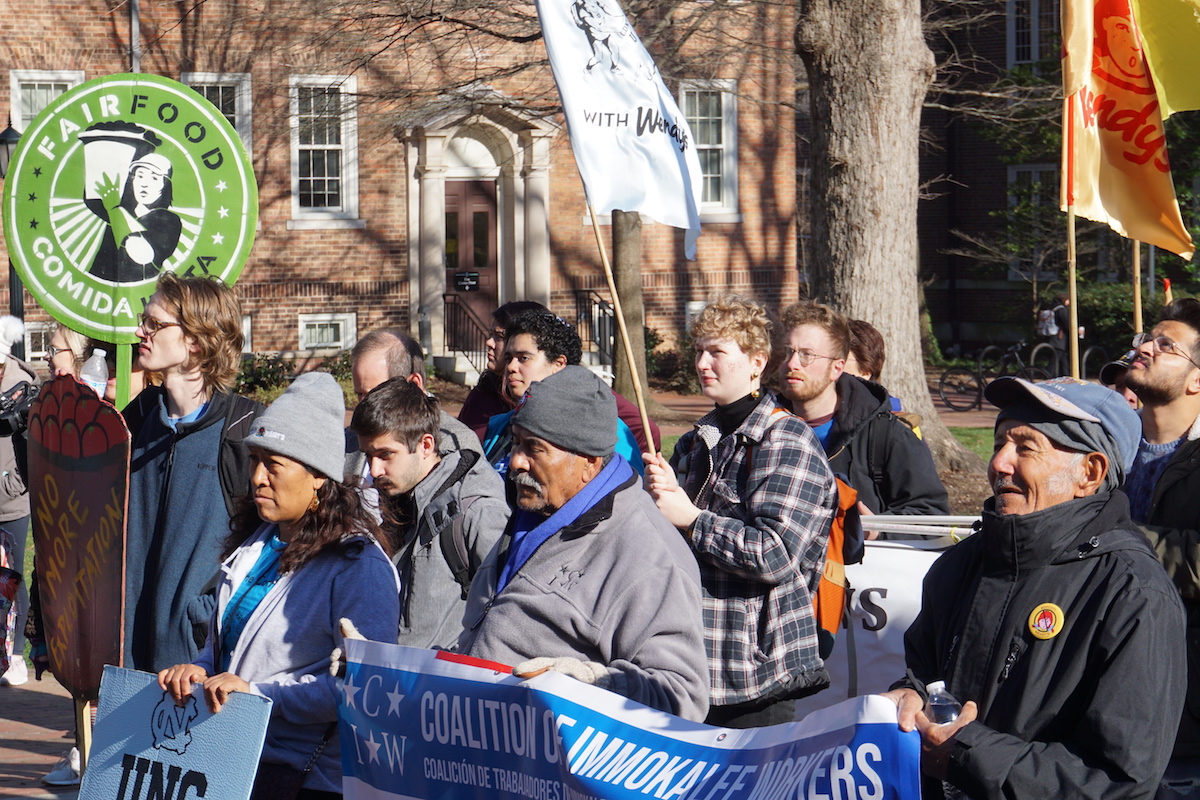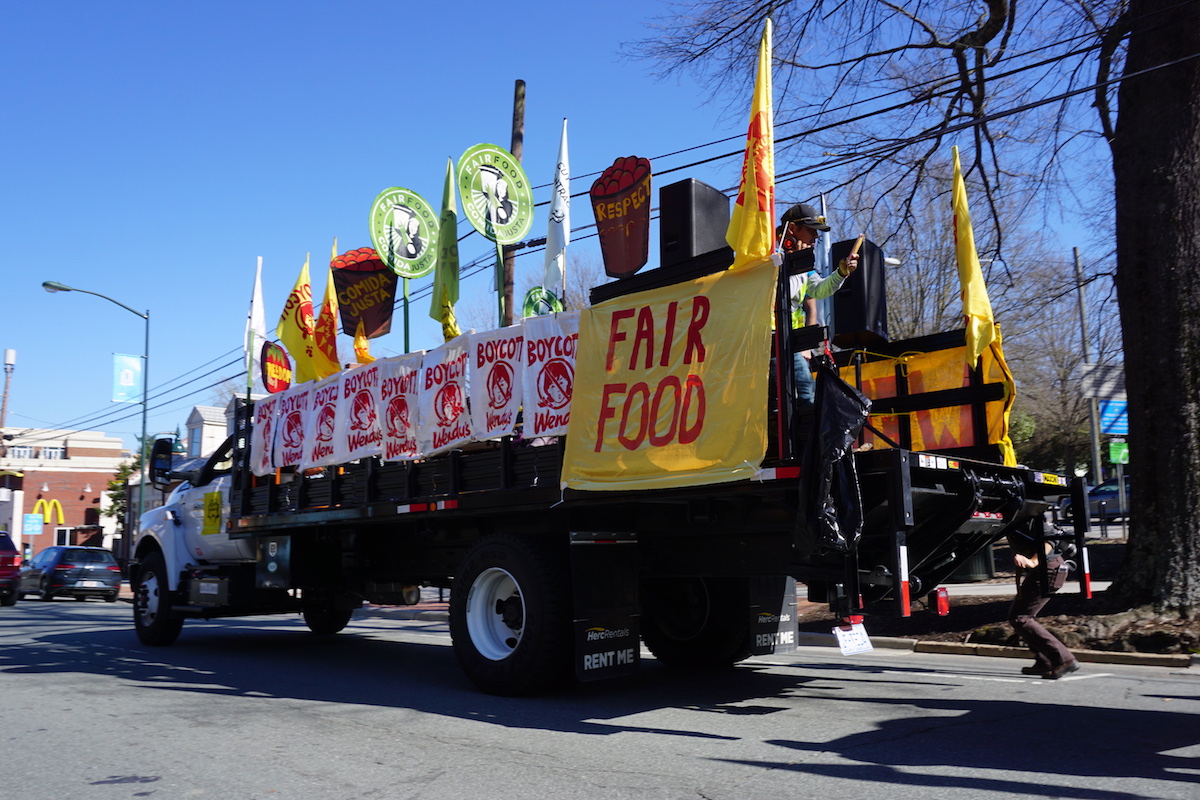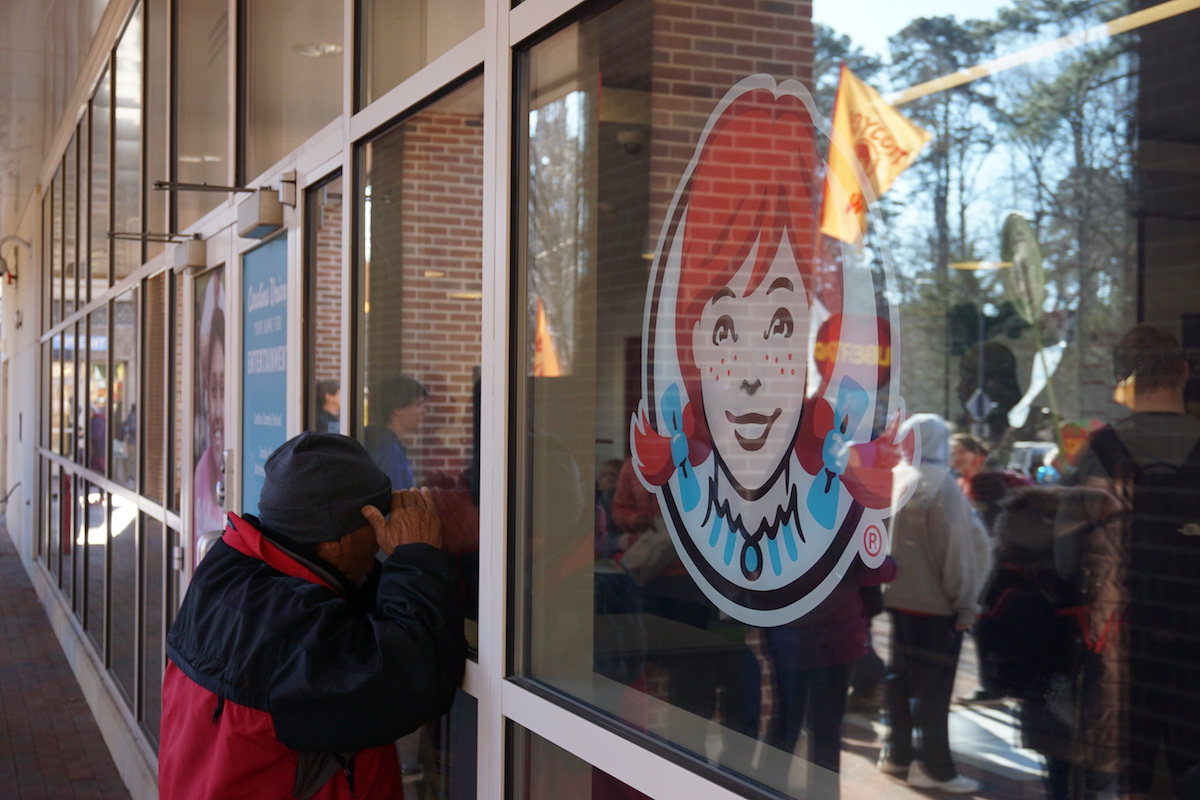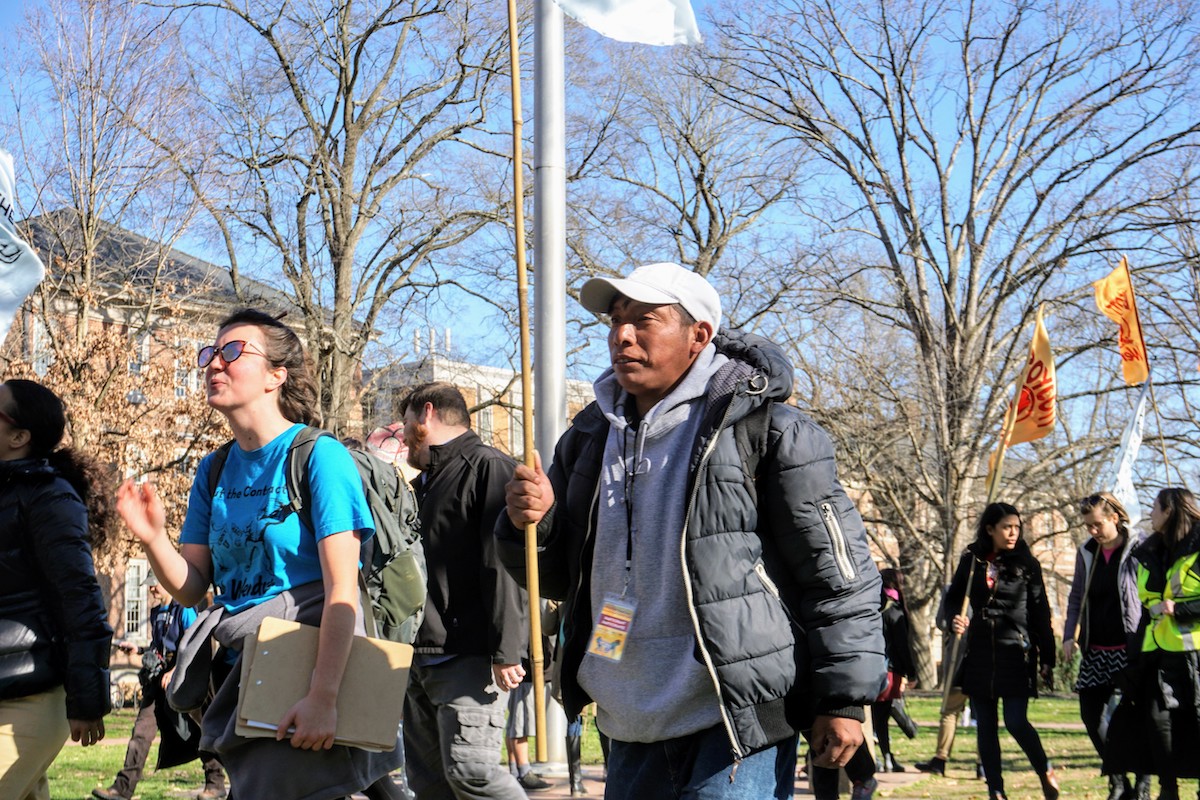

Protesters at UNC campus. (Photo by Aarón Sánchez Guerra)
Since 2013, the nationally renowned Coalition for Immokalee Workers and its partnering Student/Farmworker Alliance has led a fervent campaign to get Wendy’s to join the Fair Food Program, an acclaimed workplace monitoring program found across seven states developed by the coalition that has ensured the rights of migrant farmworkers in an agricultural system known for violations of human rights.
Wendy’s has yet to join, so between March 2 to March 14, a combined effort of farmworkers, students, activists, and others promoted “4 for Fair Food Tour,” across college campuses. The campaign was a nationwide boycott against Wendy’s to pressure them to uphold the human rights of farmworkers who pick their tomatoes.
“Before the FFP, the rights of women were not respected and there was a lot of sexual assault that was met with impunity,” said Lupe González, a CIW organizer who worked in Florida’s fields for over 10 years before the monitoring program was implemented there and witnessed human rights violations like this among child labor, wage theft, and restricted access to water and shade.
The campaign capitalized on the influential nature of student organizing in universities —as it did before to boycott Taco Bell successfully, who has now long been a part of the program— to call for universities to cut ties with Wendy’s restaurants on their campuses since the restaurant has neglected to join even among all other major fast food corporations who opened their supply chains to the program. For example, in recent months, student efforts had been uniting at University of North Carolina with crowds of protesters advocating for the removal of the Silent Sam Confederate monument from campus. This time, those very streets were bustling once again with people marching and chanting to remove Wendy’s.


Protesters at UNC. (Photo by Aarón Sánchez Guerra)
“This is part of the story of the agricultural industry but with the FFP, this is changing,” González added.
The conditions that continue to call for a program like this are particularly harmful toward farmworker women like her, given that 80 percent of farmworker women are sexually harassed or assaulted, according to the fourth and most recent report from the Fair Food Standards Council.
“As the first public university in the country, Carolina should be an example and say no to a corporation that has ignored the human rights of farmworkers nationally,” said Daniela Rodriguez, a UNC student who spoke at the protest. Rodriguez was accompanied by Kerry Kennedy, a guest of the CIW who spoke of her father’s work with activist César Chávez in the first farmworker boycotts in the nation.
Student efforts at the University of Michigan have served as a testament for the movement, since two Wendy’s locations were successfully removed this year from its campus through organizing that began in 2015.


A protester peaks inside the Wendy’s located at UNC. (Photo by Aarón Sánchez Guerra)
“The Wendy’s contract expired because our union building went under construction, and so from that moment we were working to figure out how we could prevent them from coming back to campus before the union reopened,” said Kim Daley, a postdoctoral fellow in the School of Public Health at UM and a member of the group Washtenaw Solidarity with Farmworkers, who led the organizing there.
Daley described avoiding “bureaucratic” approach and focusing on student organizing, which accomplished its goals through a resolution from Ann Arbor’s city council, a resolution from its student government, and a statement from the Michigan Union Board of Representatives.
Marches at the University of Florida boasted crowds nearing 500 on March 14 that influenced the university’s decision days later to sign a resolution recommending the removal of Wendy’s from campus. Though not a part of the tour, Florida Atlantic University followed suit on March 25.


Protesters at UNC. (Photo by Aarón Sánchez Guerra)
At Ohio State University, heightened tensions were met by students who were threatened with being arrested after staging a sit-in at the office of the school’s president, as they attempted to speak to him directly.
Silvia Pérez, a farmworker who had suffered abuse on the fields before she could report them with the help of the program, emphasized how Wendy’s fled from purchasing tomatoes from Florida after the FFP began there, and began outsourcing its tomatoes to Mexico in farms whose inhumane conditions were exposed by the Los Angeles Times and have been derisively called “Trump’s Tomatoes” in Harper’s magazine.
“Wendy’s is just looking for where tomatoes are the cheapest and where workers don’t have the right to complain about anything,” she said.
***
Aarón Sánchez Guerra is an early stage bilingual, bicultural freelance journalist and recent graduate of North Carolina State University with a B.A in English and a minor in journalism. His work spearheaded Latino coverage at his university’s paper and there he developed an interest in long form, narrative journalism. His writing is focused on migration, farmworker advocacy, international affairs, critical theory and zine storytelling. A native of the Rio Grande Valley in Texas and the state of Tamaulipas in Mexico, he hopes to talk about experiences from that borderland region in future work in print and radio.


